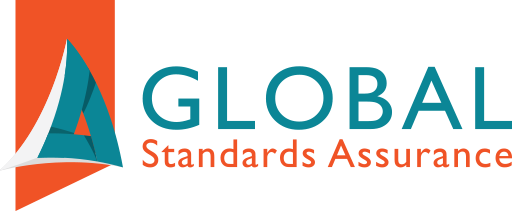Global Standards Assurance (GSA)
Unlock Your Potential:
Master Auditing with
Our Lead Auditor Courses
WHAT IS LEAD AUDIOR COURSE?
A Lead Auditor Training Course refers to a specialised training programme designed to provide individuals with the knowledge, skills, and competencies necessary to undertake lead auditor roles in various management system audits. The course typically focuses on developing expertise in conducting audits based on specific standards such as ISO 9001 (Quality Management), ISO 14001 (Environmental Management), ISO 45001 (Occupational Health and Safety Management), and others.
Participants in the course learn about auditing principles, techniques, and best practices, as well as how to effectively plan, execute, report, and follow up on audits. This training is vital in preparing individuals to lead audit teams, evaluate organisational compliance, and contribute to continuous improvement initiatives.

HOW MANY LEAD AUDITOR TRAINING COURSES GSA CONDUCTS?
Global Standards Assurance (GSA) runs the top three ISO Lead Auditor Training Courses namely ISO 9001 (Quality Management), ISO 14001 (Environmental Management), and ISO 45001 (Occupational Health and Safety Management). We ensure that resources, time, and efforts are concentrated on the standards that are most relevant and sought after by organisations across industries. We allocate dedicated resources, subject matter experts, and learning materials to ensure the utmost effectiveness and value for participants.
Join TODAY
CQI &IRCA CERTIFIED COURSES
CQI & IRCA (Chartered Quality Institute & International Register of Certificated Auditors) certified courses are training programs that have been independently assessed and accredited by CQI & IRCA, which are globally recognised professional bodies in the field of quality management and auditing. These courses are specifically designed to develop the knowledge and skills of individuals in areas such as quality management systems, auditing techniques, and other related disciplines.
The key difference between CQI & IRCA-certified courses and other providers lies in the credibility and recognition associated with these certifications. CQI & IRCA certification ensures that the training program meets rigorous quality standards and is delivered by competent trainers with extensive experience and expertise in the subject matter. The certification adds credibility to the course content and confirms that it aligns with internationally recognized best practices.
Furthermore, CQI & IRCA certified courses offer individuals the opportunity to achieve globally recognized professional certifications, such as ISO 9001, 14001, and 45001 Lead Auditor, which are highly regarded in the industry. These certifications enhance the professional profile of individuals, demonstrating their competence and capability to perform audits and contribute to the improvement of quality management systems.

LEARNING OBJECTIVES
Understanding the relevant management system standard
Mastering auditing techniques and skills
Gaining knowledge of the audit process
Developing critical thinking and problem-solving skills
Understanding auditor responsibilities and ethical conduct
Enhancing communication and interpersonal skills.
WHO SHOULD ATTEND
- Individuals aspiring to become lead auditors
- Internal auditors
- External auditors
- Quality and compliance managers
- Professionals involved in supplier audits
- Consultants and advisors
- Health and safety managers
- Environmental managers
- Risk and compliance officers
- Sustainability managers
- Regulatory compliance managers
- Operations and production managers
- Supply chain managers
- Information security managers
- Energy managers
- Human resources managers
BENEFITS OF LEAD AUDITIR TRAINING COURSES
Globally recognized certification
Successful completion of CQI & IRCA Lead Auditor courses leads to internationally recognised professional certifications. These certifications demonstrate competence in auditing and compliance with specific management system standards, enhancing professional credibility and marketability.
Comprehensive knowledge and skills
The courses provide participants with a deep understanding of management system standards, auditing techniques, and best practices. This knowledge equips individuals to effectively plan, conduct, report, and follow up on audits, driving continual improvement within organisations.
Enhanced career opportunities
Attending CQI & IRCA Lead Auditor courses enhances career prospects by expanding professional expertise and demonstrating a commitment to quality, compliance, and continuous improvement. Certified lead auditors are highly sought after by organisations across industries.
Industry recognition and credibility
CQI & IRCA certification is globally recognized and respected in the field of auditing and quality management. Being certified as a lead auditor adds credibility and enhances professional reputation, demonstrating proficiency in auditing practices and adherence to international standards.
Networking and professional development
Participation in CQI & IRCA Lead Auditor courses provides opportunities to connect with other professionals in the industry, fostering valuable networking relationships. Interacting with industry experts during the courses allows for knowledge sharing, exchanging best practices, and continuous professional development.
Stay updated with industry trends
CQI & IRCA Lead Auditor courses are regularly updated to align with the latest industry trends, standards, and practices. By attending these courses, professionals can stay abreast of changes and advancements in their respective fields, ensuring their knowledge and skills remain current.
Improved audit performance
CQI & IRCA Lead Auditor courses provide participants with the tools, techniques, and knowledge to conduct audits more effectively. This leads to improved audit performance, including increased accuracy, thoroughness, and consistency in assessing compliance with management systems.
Organizational compliance and risk mitigation
By attending CQI & IRCA Lead Auditor courses, professionals gain the skills and knowledge necessary to assess compliance with management system standards accurately. This helps organizations identify gaps, implement corrective actions, and continuously improve their systems.
Enhanced customer confidence
Achieving certification as a lead auditor through CQI & IRCA demonstrates a commitment to quality, compliance, and continuous improvement. This commitment resonates with customers, clients, and stakeholders who seek to work with organisations that prioritise high standards of quality and safety.
FREQUENTLY ASKED QUESTIONS
Becoming an ISO lead auditor involves gaining experience in the field covered by the ISO standard you want to audit, pursuing relevant education or certifications, attending training programs specifically focused on ISO lead auditor training, obtaining practical auditor experience, obtaining a lead auditor certification from a reputable Training body, engaging in continuous professional development, and networking with professionals in the auditing and quality management field. It’s crucial to stay updated with the latest standards and practices, consistently improve skills, and remain dedicated to ongoing learning.
The duration of an ISO lead auditor course can vary depending on the training provider and the specific ISO standard being covered. Generally, ISO lead auditor courses range from 3 to 5 days of intensive training. However, some courses may be shorter or longer, depending on the depth of the content and the training methodology used. Additionally, some training programs may offer a combination of online and in-person sessions or provide flexibility in terms of self-paced learning. It’s important to check the course details provided by the training provider to determine the specific duration of the ISO lead auditor course you are interested in.
Determining the “best” ISO lead auditor course is subjective and depends on individual preferences and requirements. However, highly regarded options include the CQI-IRCA Certified Lead Auditor Training and Exemplar Global Certified Lead Auditor. Factors to consider when selecting a course include the training provider’s reputation, course content, practical exercises, accreditation, and cost. It can be helpful to read reviews and seek recommendations from professionals in the auditing field. Ultimately, choose a course that aligns with your specific needs and provides the knowledge and skills necessary to become a competent ISO lead auditor.
The cost of becoming ISO lead auditor certified in the UK can vary depending on factors such as the certification body, the specific ISO standard, the training provider, and any associated fees for exams or materials. Generally, the cost ranges from a few hundred to a few thousand pounds. It’s advisable to research different training providers and certification bodies to obtain accurate pricing information. Consider the value and quality of the training when comparing costs to ensure a comprehensive and effective learning experience. Additional expenses to factor in may include exam fees, study materials, and potential travel or accommodation costs for in-person training.
While the designation of “lead auditor” itself does not expire, certifications or qualifications related to lead auditor roles often have expiration periods. Certification bodies typically require lead auditors to undergo periodic recertification or renewal to ensure their knowledge and skills remain current. The duration of certification validity can vary, but it is typically around three to five years. Lead auditors must stay informed about any renewal requirements associated with their specific certification to maintain their credentials and demonstrate ongoing competence in the field.


